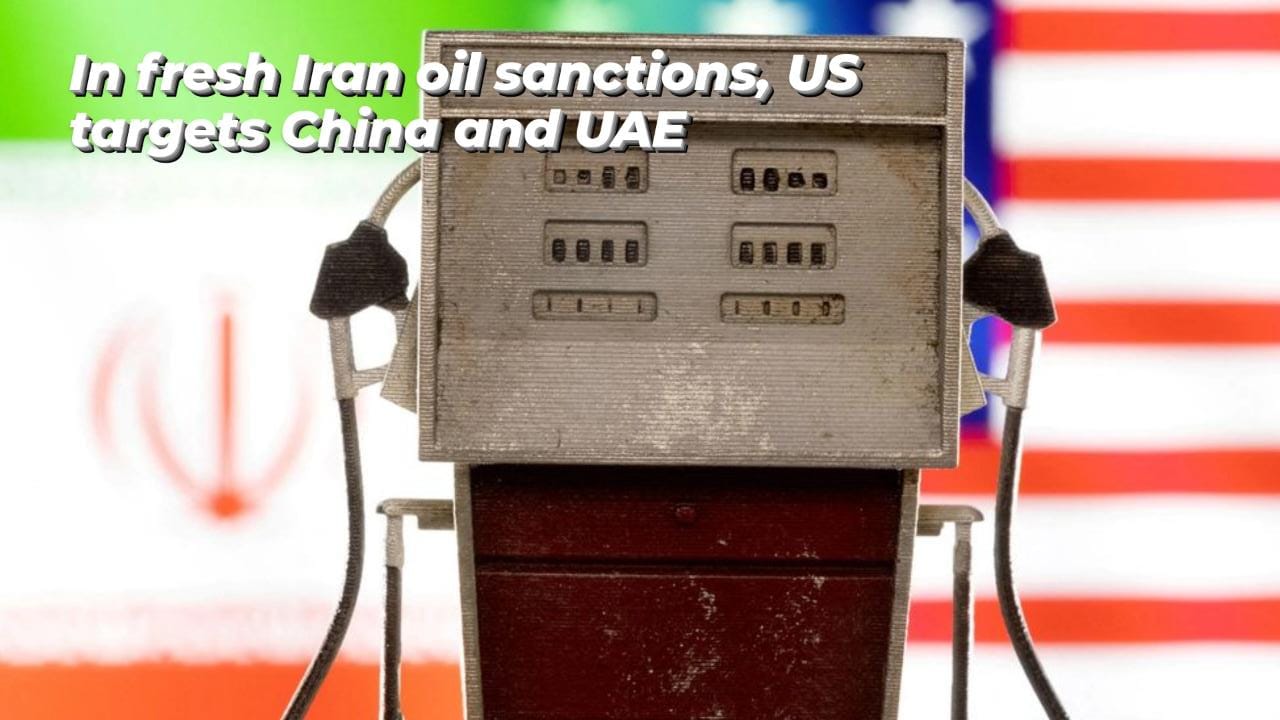
In an effort to put more pressure on Tehran to curtail its nuclear programme, the United States on Monday announced sanctions on Chinese and other companies it claimed assisted in the sale of Iranian oil and petrochemical products worth tens of millions of dollars to East Asia.
In separate statements, the U.S. Treasury and State Departments announced that they had sanctioned a total of six businesses, four of which had their headquarters in Hong Kong, one in Singapore, and one in the United Arab Emirates (UAE).
One of Iran’s main petrochemical brokers, Persian Gulf Petrochemical Industry Commercial Co. (PGPICC), was accused by the Treasury of utilising the companies to enable the export of Iranian oil and petrochemical products to East Asia.
The Treasury targeted the UAE-based Blue Cactus Heavy Equipment and Machinery Spare Parts Trading L.L.C., alleging that it assisted in the sale of millions of dollars’ worth of petroleum products with Iranian origin to the Hong Kong-based Triliance Petrochemical Co. Ltd.
Farwell Canyon HK Limited and Shekufei International Trading Co., Limited, both situated in Hong Kong, were also targeted for enabling such sales for subsequent transportation to customers in East Asia.
The Treasury charged PGPICC with utilising the companies’ bank accounts, as well as those of PZNFR Trading Limited, a company with offices in Malaysia and Hong Kong, to get millions of dollars in revenues.
Separately, the State Department imposed sanctions on Hong Kong-based Golden Warrior Shipping, Co. Ltd. and Singapore-based Pioneer Ship Management PTE LTD for allegedly managing a ship carrying Iranian petroleum products and oil-related transactions.
The steps effectively block Americans from dealing with American-based assets and freeze them. Others who do specific transactions with the targeted firms run the danger of being punished as well.
The actions mark the third round in the past two months of U.S. penalties targeting Chinese companies related to Iran.
Since taking office in 2021, U.S. President Joe Biden has been reluctant to impose sanctions on Chinese companies that trade oil with Iran in the hopes of reviving the 2015 Iran nuclear deal.
The deal, under which Iran restricted its nuclear programme in exchange for relief from U.S. and other sanctions, has so far been unsuccessfully revived, prompting Washington to look for alternative strategies to exert more pressure on Tehran.
Brian Nelson, the Treasury’s Under Secretary for Terrorism and Financial Intelligence, said in the statement that the United States ‘continues to pursue the path of diplomacy to achieve a mutual return to full implementation of the Joint Comprehensive Plan of Action,’ which is the official name of the 2015 agreement.
We will keep enforcing sanctions against the illegal sale of Iranian oil and petrochemicals ‘until Iran is ready to return to full fulfilment of its commitments.’
Iran will reply ‘decisively and firmly’ to the White House’s continuance of sanctions, according to a statement from Nasser Kanaani, the spokeswoman for the Iranian Foreign Ministry in response to the new penalties.

Post Your Comments